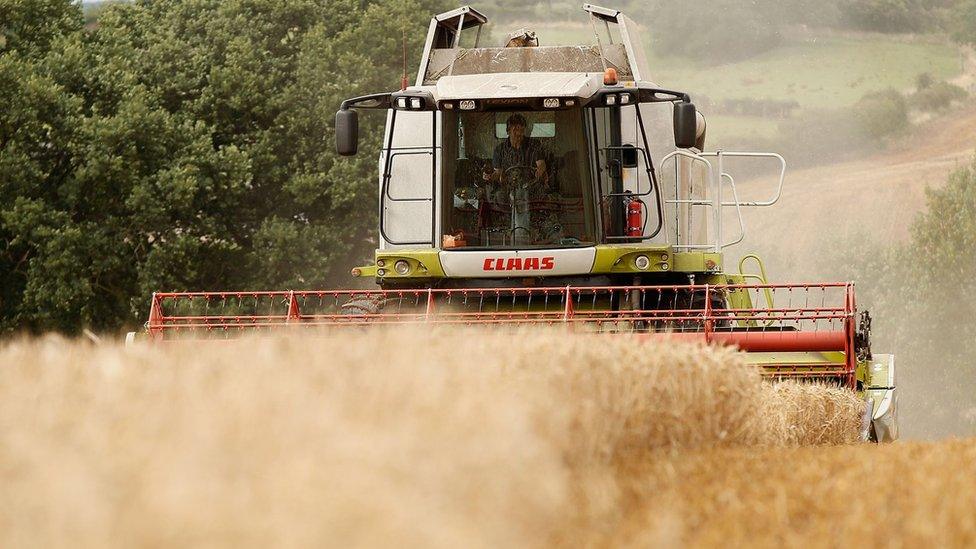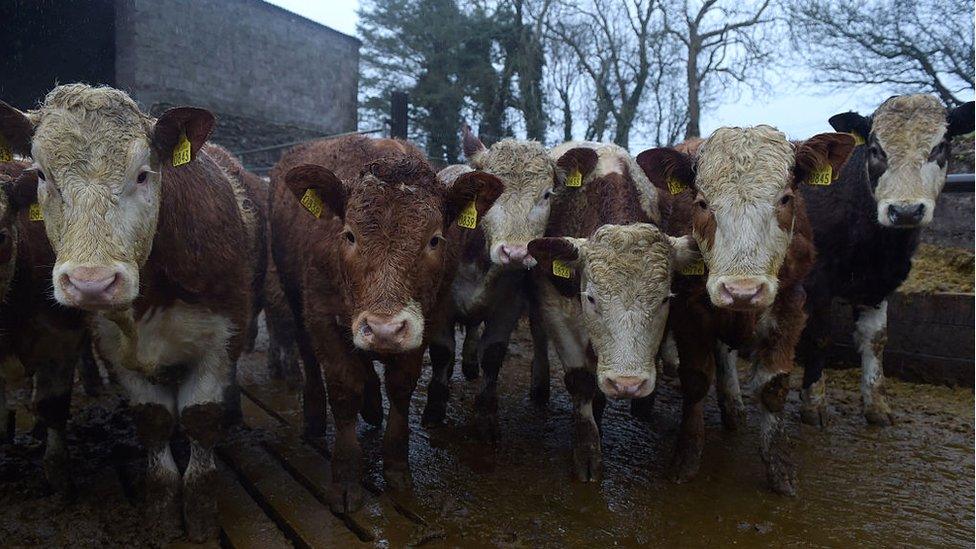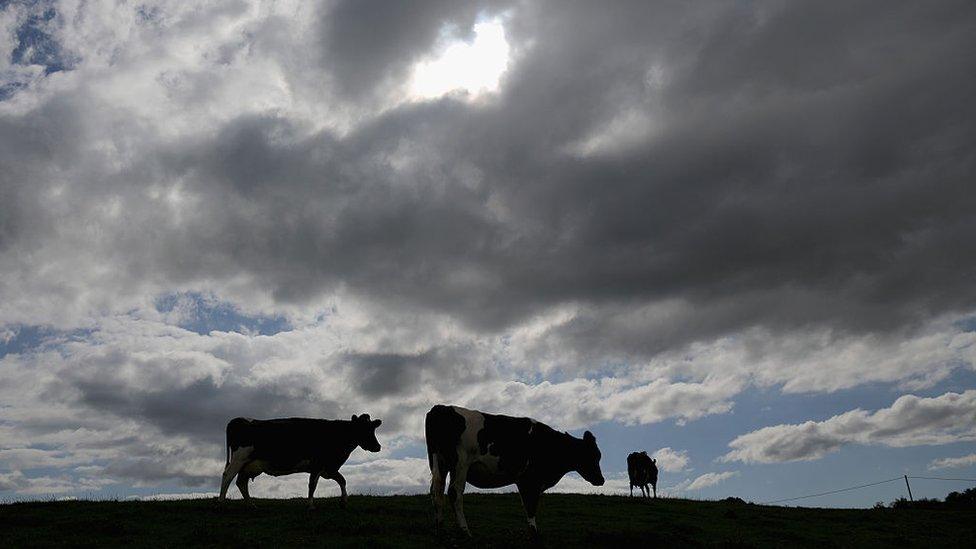Britain’s farmers could benefit from weaker pound after Brexit vote
- Published

The value of the subisidies British farmers get depend on the pound-euro exchange rate
You might think the most important thing happening in the UK farming industry is the summer harvest.
But as the fields of wheat and barley are brought in for the winter, farmers will have their eye on something other than the weather.
"The exchange rate between the pound and the euro is absolutely vital. It is the single biggest determinant of the profitability of British farming," says Anand Dossa, economist at the National Farmers Union.
The average exchange rate between the euro and the pound in September will determine how much money UK farmers get from the European Union's Common Agricultural Policy (CAP) - the source of more than half of UK farming's income last year.
CAP payments are set in euros, so what British farmers get depends on the exchange rate; last year they got the worst rate in eight years.
Since the EU referendum the pound has fallen to 30-year lows against the dollar and has weakened significantly against the euro.
This means there could be a 15% increase in farmers' EU subsidies once they're converted into sterling - about an extra £500m.
Competitive edge
However, the weaker pound can make fuel, fertiliser and food for animals more expensive, but there is some evidence that in some areas it has already given a boost to UK produce, both at home and abroad.

Irish beef imports have now become more expensive in the UK due to the weaker pound
Foreign-sourced food has now risen in price compared to home-grown produce, and UK farmers have gained a competitive edge when selling overseas.
Richard King, head of business research at The Andersons Centre, a farming business consultancy, explains: "The UK beef sector, say, sees a lot of imports from Ireland - suddenly they're more expensive.
"So that just allows our prices internally to rise. But if you're exporting wheat to Spain, for example, our grain looks cheaper. It is noticeable out there already.
"That leaves some thinking we've voted and we have a better situation - but of course it is only a short-term boost."
The UK government has said it will make sure farmers don't lose out on subsidies until at least 2020 as the UK negotiates a deal to leave the European Union.
As well as subsidies, the UK's trading relationship with the bloc is vital.
"Farming is probably more international than people realise," says Mr King.
"There's a mental image of a farmer leaning on his gate with a bit of straw hanging out of his mouth but these are businesses and once the goods get through the farm gate they are commodities that are traded internationally like anything else.
"Grain is traded in the same way as iron ore, steel, coal."
Trading relationships
The UK exported £18bn of food and drink last year and imported £38.5bn worth. Its biggest trading partners were Ireland, France, the Netherlands and the USA.
"You can trade with the French as easily as you can between the north and south of England and that's almost as good as it can be," says Mr King.
The boost from the fall in the pound, both through prices and EU subsidies, was much needed, say many farmers.
Prices have been falling for almost three years in the UK. The latest data from the Department for Environment, Food & Rural Affairs (Defra) shows they are almost back to 2010 levels.
The NFU says many family farms in the UK "would not be viable" without state support.
Defra, a department that is now headed by Andrea Leadsom, a prominent pro-Brexit campaigner, says support for farmers will form "an important part" of the UK's exit from the EU.
In a statement it said: "We will work to ensure the best possible outcome for the British people; not least our farming community who play a vital role in our country."

Many family farms in the UK "would not be viable" without state support, says the NFU
Daniel Rosario, spokesman for agriculture at the European Commission, says: "The UK remains a member of the EU with all rights and obligations of a member state.
"For the time being, nothing changes."
As far as the harvest goes, this year's winter barley crop was hit by bad weather in June in the run up to the EU referendum. But the crops sown in the spring had the best of a heat wave in July, so the later harvest is looking much better.
"I think farmers are a pretty resilient bunch," says Mr King.
"Farming has been through a lot before - foot and mouth, floods, you name it - and they will get through this too."